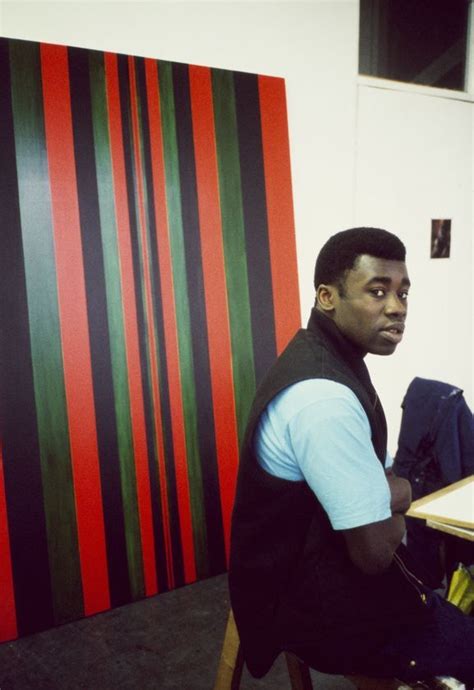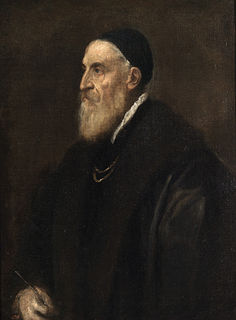A Quote by Frank Stella
One learns about painting by looking at and imitating other painters. I can't stress enough how important it is, if you are interested at all in painting, to look and to look a great deal at painting. There is no other way to find out about painting.
Related Quotes
All that stuff about flatness - it's this idea that painting is a specialized discipline and that modernist painting increasingly refers to painting and is refining the laws of painting. But who cares about painting? What we care about is that the planet is heating up, species are disappearing, there's war, and there are beautiful girls here in Brooklyn on the avenue and there's food and flowers.
You have bits of canvas that are unpainted and you have these thick stretcher bars. So you see that a painting is an object; that it's not a window into something - you're not looking at a landscape, you're not looking at a portrait, but you're looking at a painting. It's basically: A painting is a painting is a painting. And it's what Frank Stella said famously: What you see is what you see.
Personally I would like to have pupils, a studio, pass on my love to them, work with them, without teaching them anything.. ..A convent, a monastery, a phalanstery of painting where one could train together.. ..but no programme, no instruction in painting.. ..drawing is still alright, it doesn't count, but painting - the way to learn is to look at the masters, above all at nature, and to watch other people painting.
I think a good painting or a good work of art does many things it wants, I mean, maybe 15 or 20 or 100. One of the things a painting does is to make the room look better. It improves the wall that it's on. Which is much harder than it looks. And that's a good thing. And if one engages with a painting on that level, that's fine, that's great. After some time, familiarity, the other things that a painting does, the other layers, they just start to make themselves felt.
There are absences, but there are also presences. It's about how painting can evolve its own abstractions. I didn't know the painting was going to be about that, but it has to have that journey; I have to learn something, I have to end up somewhere I didn't expect to be, otherwise, I don't think it's painting.
When I was painting in art school - and I think many painters in the 1980s worked similarly - a finished painting would often be constructed from lots of other paintings underneath. Some of these individual layers of painting were better than others, but that was something that you would often only realise retrospectively.
When I am in a painting, I'm not aware of what I'm doing. It is only after a sort of 'get acquainted' period that I see what I have been about. I have no fears about making changes, destroying the image, etc, because the painting has a life of its own. I try to let it come through. It is only when I lose contact with the painting that the result is a mess. Otherwise there is pure harmony, an easy give and take, and the painting comes out well.
Not every painter has a gift for painting, in fact, many painters are disappointed when they meet with difficulties in art. Painting done under pressure by artists without the necessary talent can only give rise to formlessness, as painting is a profession that requires peace of mind. The painter must always seek the essence of things, always represent the essential characteristics and emotions of the person he is painting.
Every single painting is different. I'm always trying to figure out what I'm interested in. Usually when I go through and I make the collages or the images for ideas that I want to paint, it's like an Ouija board. Each painting I do is trying to understand what the hell I'm looking at, or want to look at.





































